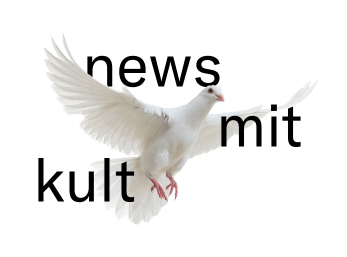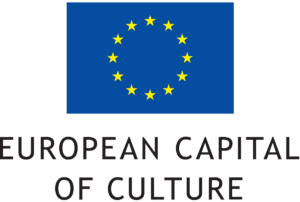→ Forum Thinking the Future – A project of the European Capital of Culture Bad Ischl Salzkammergut 2024 in cooperation with the German Embassy Vienna and EUNIC Austria
Europe in the competition of great powers. A manifesto
1. The expectation that the collapse of the Eastern bloc and the dissolution of the Soviet Union would lead to an era of peace and cooperation on prosperity has turned out wrong. In many parts of the world, we are currently observing a return of imperial sphere-of-influence politics: China primarily uses its economic and fiscal power to pursue it, Russia relies on military means, and the US use a mix of instruments to secure their dominance in what tends to be a global framework.
2. Considering its economic importance, the EU could be a global player. Instead, it behaves as a spectator rather than a player in this newly erupted competition of the great powers. It is politically weakened due to the rise of populist parties in its member states. There has recently been a rapid growth of centrifugal forces—not least because of conflicts on a number of issues: whether to take in refugees and immigrants, a suitable reaction to the Russian war of aggression against Ukraine, and a common political stance regarding the wars in the Middle East. These growing centrifugal forces in Europe need to be opposed by a centripetal force—one that is equipped to make decisions and implement them—if the EU is to have a future. But who can or should be that force? The Commission? The Council? Parliament? Or a group of member states? What is clear is that without a stronger hierarchy for its internal structure, the EU will not be able to increase its political capacity to act.
3. According to the EU’s own understanding, it enforces its values and rules within its geographical borders. This has become increasingly difficult over the last few years, as a number of states don’t keep the commitments and obligations they entered into. According to the Theory of Imperialism, the EU is currently in a state of “overstretch”, meaning that the challenges and problems it faces are larger than its capacities and competencies of tackling the former. At the same time, there are more countries that wish to join the EU. In situations of overstretch, there are two possible reactions: geographical shrinkage or an increase of capacities, i.e., the resources and competencies of the centre. Otherwise, the EU will become meaningless and face its demise.
4. Besides institutional reforms, the Union needs a guiding idea or an inspiring narrative which showcases its goals and the role it ascribes to itself and/or dares to assume both at the European and at global level. This definition of a role—by way of a guiding idea or narrative—needs to be more than a description of the status quo, while still envisaging something that is achievable in principle. It cannot be merely a wish beyond the reach and power of the Union.
5. The EU is egalitarian in form: each member has the same voting weight as well as a representative to the Commission. This rule does not take into account the actual weight or population size of the respective member states, however, which has led to the emergence of actual structures of influence in Brussels that do not correspond to the formal rules. This area of tension between what formally should be and what actually is reinforces the powers that drive apart the Union. The question is whether, under the current conditions, the Union can be a political player capable of acting. However, in a competition and/or conflict with Russia and China and, possibly, in a more estranged relationship to the US, Europe needs capacity to act if it wants to assert its interests and values.
6. The global competition of powers, which is currently emerging, is also a competition of systems. It ultimately results in political rivalry between liberal democracies and authoritarian autocracies, which is staged globally— most recently with advantages for the autocratic regimes. In terms of numbers, liberal democracies are in decline internationally. The African continent is of particular strategic interest for Europe. China (in Sub-Saharan Africa) and Russia (in the Sahelian zone) have built expansive spheres of influence there. At the same time, however, flows of refugees arising in Africa as a result of civil wars and climate change are headed towards Europe, thus posing a challenge to its cohesion. The EU needs to develop an Africa strategy based on fair cooperation between Europe and Africa and supplemented by an elaborate stance concerning refugees, immigration, and integration, supported by all EU member states. This would strengthen ties with its neighbours and avoid the rise of populist forces within the EU.
7. Europe needs to keep up with the US, both economically and technologically, to avoid falling behind without being able to catch up, and becoming permanently politically dependent. It will continue to depend on the US in terms of security policy, but must not fall behind economically, too. This requires closer and more effective cooperation between EU member states in the fields of economy and science. Furthermore, political and institutional conditions must be improved in order to accumulate capital more efficiently and enable better access to private and public risk capital. This can help close investment gaps and promote innovations. The EU should expand the single market in areas that have been excluded until now, optimise regulatory frameworks, and strengthen strategic core areas in order to remain economically competitive. Letta’s and Draghi’s reports provide comprehensive strategies for that.
8. Regional alliances that have emerged within the EU over the last few years (Union for the Mediterranean, Visegrád Group, etc.) have an ambivalent effect. On the one hand, they can indeed enable states to tackle regional challenges and thus take some of the burden off the centre, as well as provide new impulses in certain policy fields; on the other, they serve particular interests, thus strengthening centrifugal forces and calling into question the EU as a whole in the process, especially considering the expectation that every larger problem will be dealt with by Brussels and/or the call for solidarity of all member states. Besides prudent regionalisation, strengthening the centre and equipping it with the necessary budgetary means and contractually agreed competences seems to be the reasonable approach in the long term.
9. The principle of unanimity in votes, which still exists in certain areas, has become dysfunctional after various rounds of enlargement that have increased the number of member states from the original six. It needs to be abolished, if necessary by forming a centre consisting of large member states that take relevant decisions for all of Europe. This threat alone should suffice to put an end to the unanimity-based veto regime of certain states.
10. In fields of secondary importance, communities of interest made up of various states—similar to existing concepts such as “Multi-Speed Europe” or “Coalition of the Willing”—might be a means to abolish the obligation of unanimity.
11. Incidentally: All points raised here serve the purpose of increasing the EU’s capacity to act in fundamental issues such as climate change, protection of human rights, and socio-economic injustice.
Sebastian Breitwieser, Tabea Hahn, Jakob Osawaru, Jeldrik Schottke, Ludwig Sontag
Herfried Münkler





















